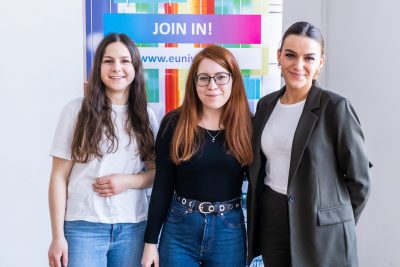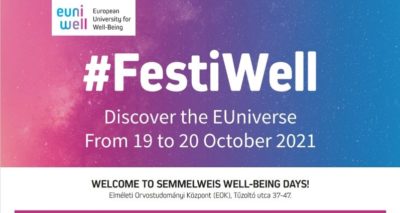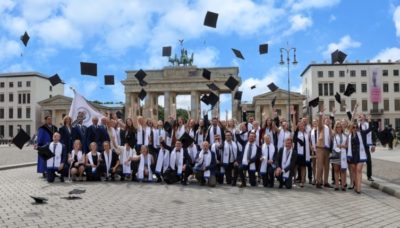“Ich hab’ mein Herz in Heidelberg verloren” (My heart always draws back to Heidelberg) – Dr. Béla Merkely, Rector opened the Jellinek Harry Scholarship Online Student Forum with these words. The forum was organized by the Directorate of International Relations on 17 June 2021, with the participation of former Jellinek Scholarship students. The deadline for application is 30 June for 5th year medical students and PhD students.
As a Jellinek Scholarship student, Dr. Béla Merkely, Rector spent two years in Heidelberg, where, after completing the 10-month program, he continued his research on the long-standing German university town on the banks of the River Neckar with a DAAD scholarship (German Academic Exchange Service). Other participants of the forum, Dr. Attila Szabó, Vice-Rector for Clinical Affairs, Chief Secretary of the Ödön Kerpel-Fronius Talent Support Program and Dr. András Kiss, Rector’s Representative for German Relations, Director of the 2nd Department of Pathology also talked about their own Jellinek scholarship experiences to the participants of the forum.
Germany has always been one of the most important strategic partners of Semmelweis University, and thanks to many years of well-functioning personal and professional relationships, various forms of cooperation have been achieved over the past almost forty years. The joint work between the institutions is governed by framework agreements concluded in 1983 with Semmelweis University’s two most important German partner universities, the Albert-Ludwig-Universität in Freiburg and the Ruprecht-Karls-Universität in Heidelberg. German language training was started at the institution also almost forty years ago, in 1983, therefore in 2023 another significant anniversary will be celebrated.
 Outstanding among the implemented joint programs is the almost one-year-long scholarship program, which was named after Harry Jellinek, the famous Hungarian physician, pathologist, university professor, a former director of Semmelweis University’s 2nd Department of Pathology.
Outstanding among the implemented joint programs is the almost one-year-long scholarship program, which was named after Harry Jellinek, the famous Hungarian physician, pathologist, university professor, a former director of Semmelweis University’s 2nd Department of Pathology.
In the framework of the program, the winning applicants – 4 students in Heidelberg and 2 students in Freiburg – may conduct scientific research work for 10 months each year in the research laboratories or hospitals of the two universities.
Initially, only fifth-year students could apply for the program, but from 2019, PhD students also have the opportunity to participate in the program, based on the decision of the university’s senior management.
If someone envisions his/her future at Semmelweis University, this is a very important stepping stone, because language skills, relationships will all help us to establish the basis for the future. This is the reason for the fact that we support our students in this as far as we can. We would like to be able to welcome as many of the colleagues who apply for the Jellinek scholarship program as possible among the teaching staff at our university”
– said Dr. Béla Merkely.
The success of the program so far is also proven by the fact that from 1983 to the present, almost 200 scholarship students participated in the program in Heidelberg and Freiburg.
Confirming the words of the Rector, Dr. András Kiss spoke about the importance of personal relationships. At the beginning of the program, students in the Jellinek program conducted scientific research at the two German universities, mainly in the fields of cardiology, pathology and pediatrics, thanks to the existing relationships.
“Professional relations, on the other hand, may be initiated and strengthened in any other field, as the management and professionals of both the University of Heidelberg and the University of Freiburg are outstandingly committed to further developing relations and providing assistance to anyone who needs it. For example, if there is no established professional relationship in the field where the winning candidate would like to conduct research, they will help to find a suitable research group. Cooperation between the professional research groups is therefore essential, they must be maintained and further developed”, Dr. András Kiss referred to the words of Dr. Béla Merkely.
After completing the program, former Jellinek students will have a number of opportunities to present their research findings, such as the biennial Semmelweis-Freiburg-Heidelberg Trilateral Symposium, which is held each time at one of the participating universities. The Symposium organized in 2021 will be hosted by Semmelweis University in Budapest.
“This is a unique opportunity to gain experience at two of Europe’s leading universities and to get involved in the work of its research teams in a way that is closely linked to and relevant to research work conducted at home”, pointed out Dr. Attila Szabó, Vice-Rector for Clinical Affairs.
This is one of the reasons why the Ödön Kerpel-Fronius Talent Support Program supports outgoing students, who receive a one-time grant of HUF 500,000 in addition to their scholarship received abroad.
After the presentations, Dr. Marcel Pop, Director of the Directorate of International Relations, the organizer of the student forum, gave the floor to the students currently participating in the program.
First, Dr. Eszter Lévai talked about her experiences in Heidelberg, who first conducted research in a pediatric nephrology research group as a 5th year student and her research work there is still ongoing now as a PhD student. As she said, she already had an extremely positive experience in Heidelberg in the course of the first 10 months. She easily became an integral part of the community very soon, as her German colleagues were very accommodating. That is why she decided to re-apply for the program as a PhD student after graduating.
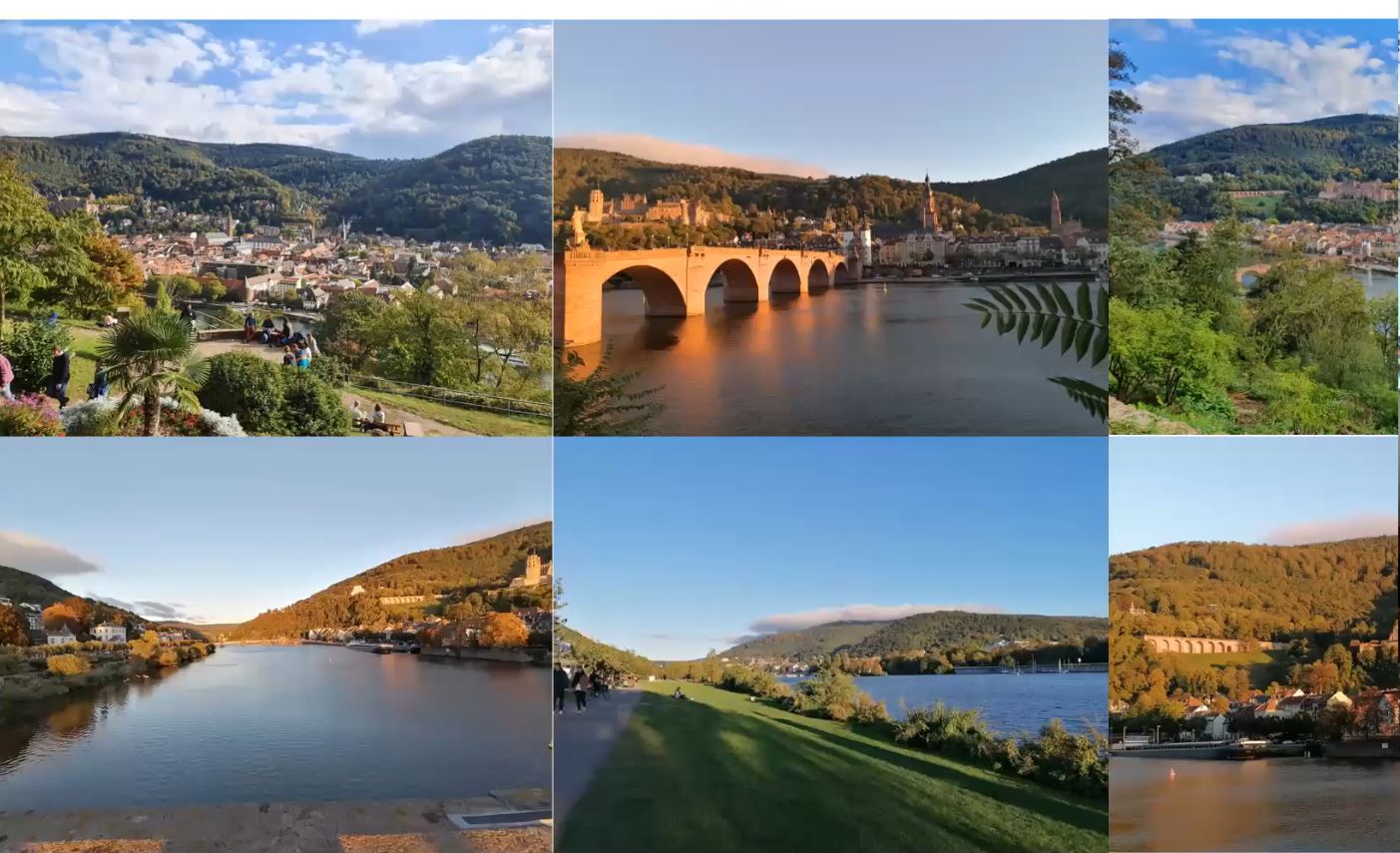 According to her, those who had a fear about postponing an academic year because of participating in the program should not worry about this: she thought nothing was as useful to her in her professional life as the extra year that she spent abroad, and this could be especially important for those thinking about getting a PhD after graduating from university.
According to her, those who had a fear about postponing an academic year because of participating in the program should not worry about this: she thought nothing was as useful to her in her professional life as the extra year that she spent abroad, and this could be especially important for those thinking about getting a PhD after graduating from university.
After Dr. Eszter Lévai, Dr. Ildikó Kocsmár talked about her personal experiences, who went to Heidelberg in 2019 in her 3rd PhD year to a molecular pathology laboratory with the help of Dr. András Kiss, Director of the 2nd Department of Pathology. Speaking about his experiences, Dr. Bálint Barta, PhD student, said that he is a pioneer, as he is the first to participate in the joint PhD training of the Universität Freiburg and Semmelweis University.
“This proved to be a serious undertaking, we started the first steps in October 2019, and I have recently reached the last step, the finalization of the German enrollment in February 2021. You do not have to be afraid of the difficulties, even if you do not have a working relationship with a research group at that university”, said Dr. Bálint Barta.
All three universities – Universität Freiburg, Universität Heidelberg and Semmelweis University are extremely committed to the success of the program, and both the university management and the professors, professionals and operational staff supporting the program are working hard so that more and more students may experience this excellent opportunity. Using the competencies acquired at home and the new experience gained in Germany, returning students can gain benefits that they can re-use in the course of their further research work at home.
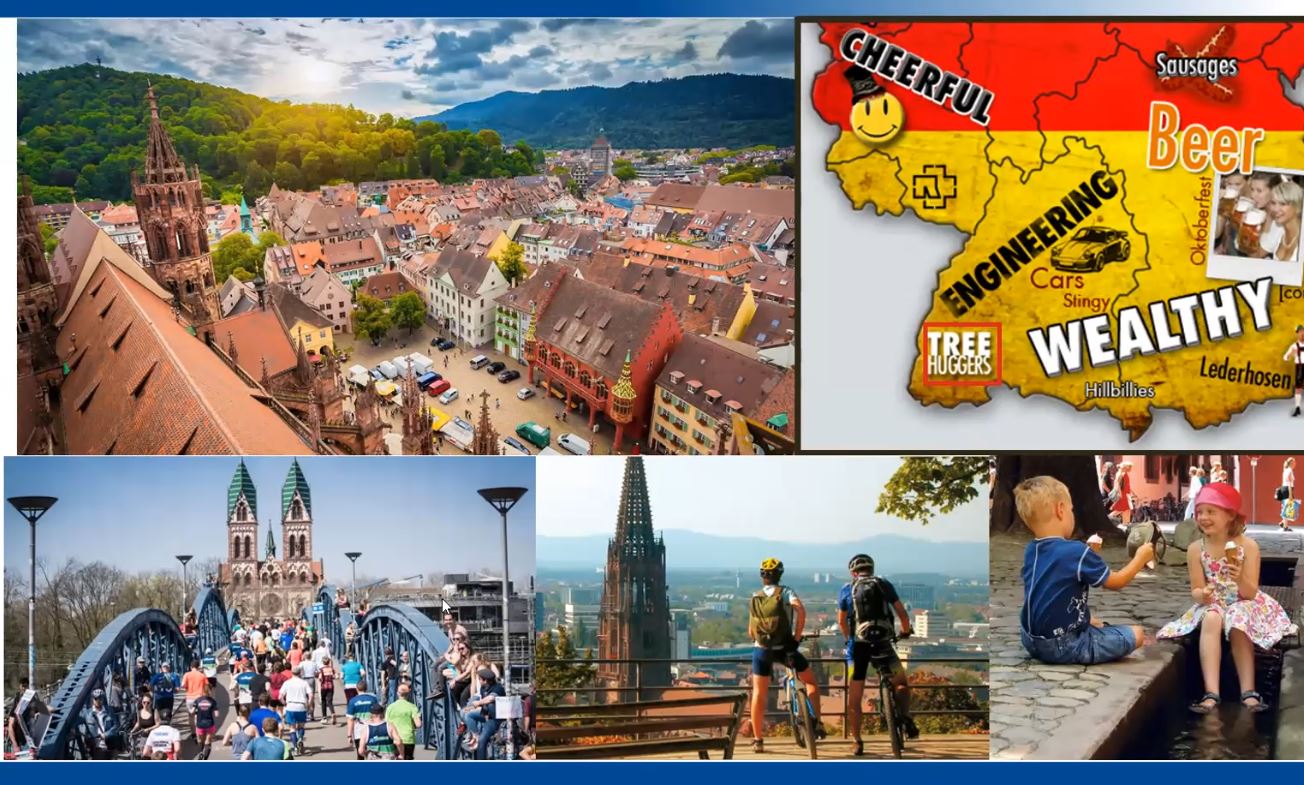 The leadership of Semmelweis University strongly supports participation in the program. According to Dr. Béla Merkely, they try to do everything possible to have as many people as possible to apply for the program. As he pointed out, if there is a concern or obstacle that might cause hesitation about joining the program or not, the university leadership will try to resolve it. The Rector also emphasized that the further strengthening of German relations is one of the most important strategic goals of the university and that they aim at building a bridge between the two countries.
The leadership of Semmelweis University strongly supports participation in the program. According to Dr. Béla Merkely, they try to do everything possible to have as many people as possible to apply for the program. As he pointed out, if there is a concern or obstacle that might cause hesitation about joining the program or not, the university leadership will try to resolve it. The Rector also emphasized that the further strengthening of German relations is one of the most important strategic goals of the university and that they aim at building a bridge between the two countries.
For me, the 1+1 years spent abroad were an experience for a lifetime”
– Dr. Béla Merkely highlighted.
Judit Szlovák, Directorate of International Relations
Photo: Directorate of International Relations; photos taken by former Jellinek Harry Scholarship students
Translation: Katalin Illés-Romhányi
